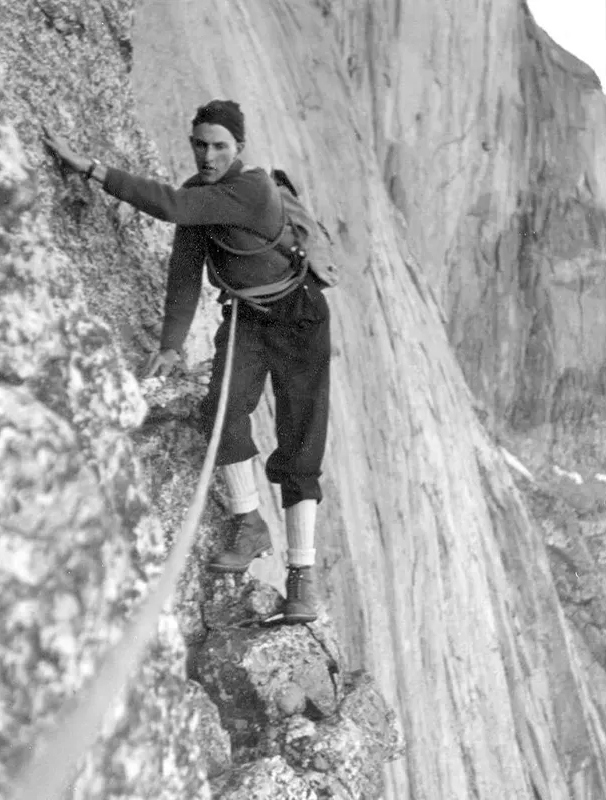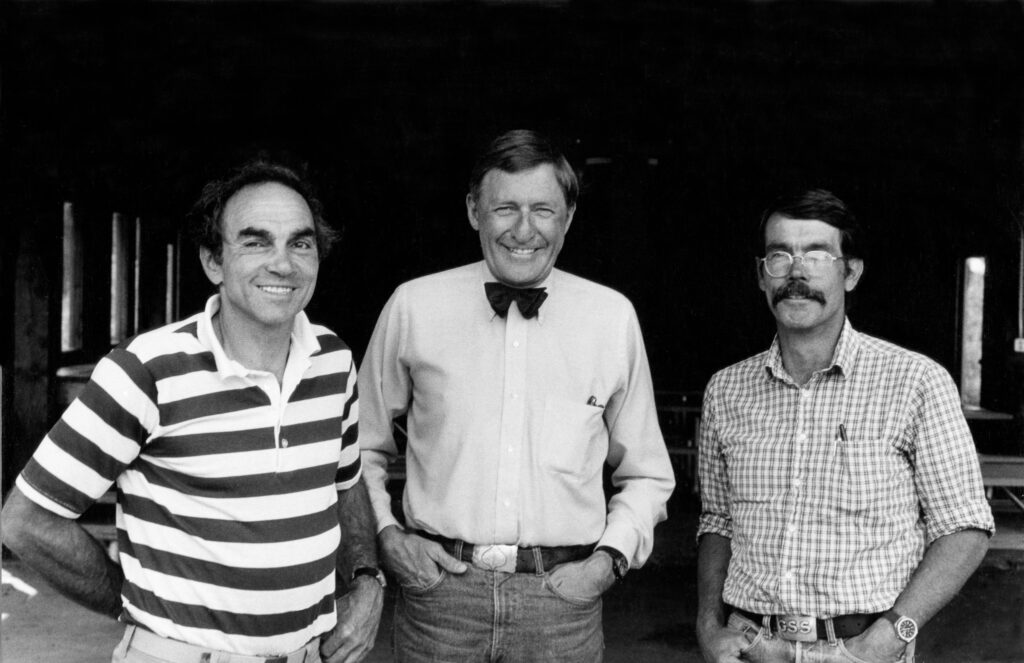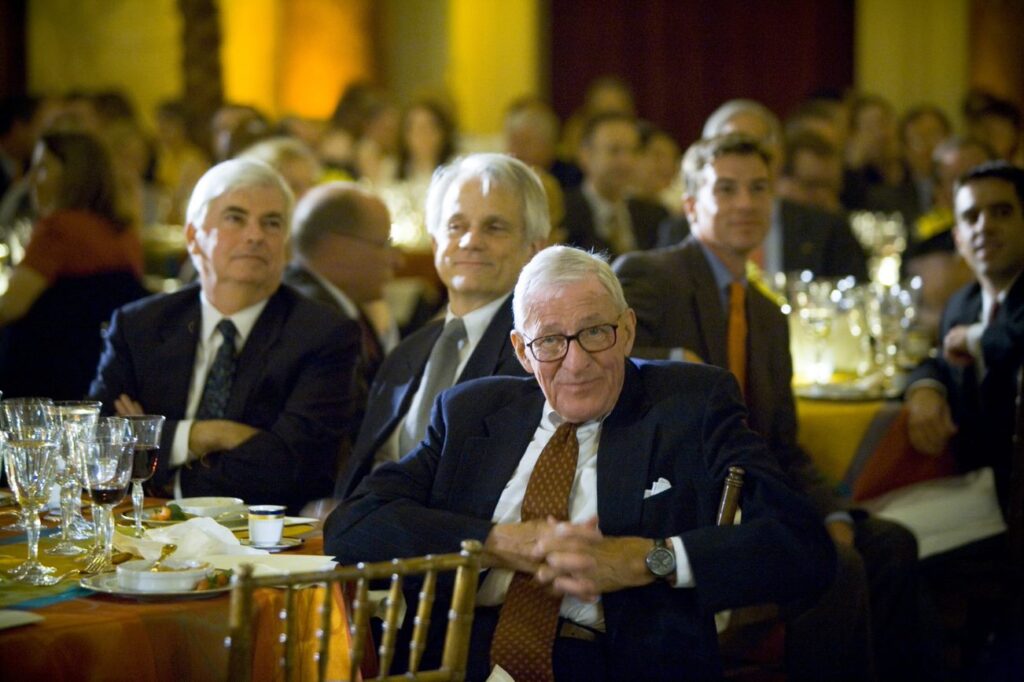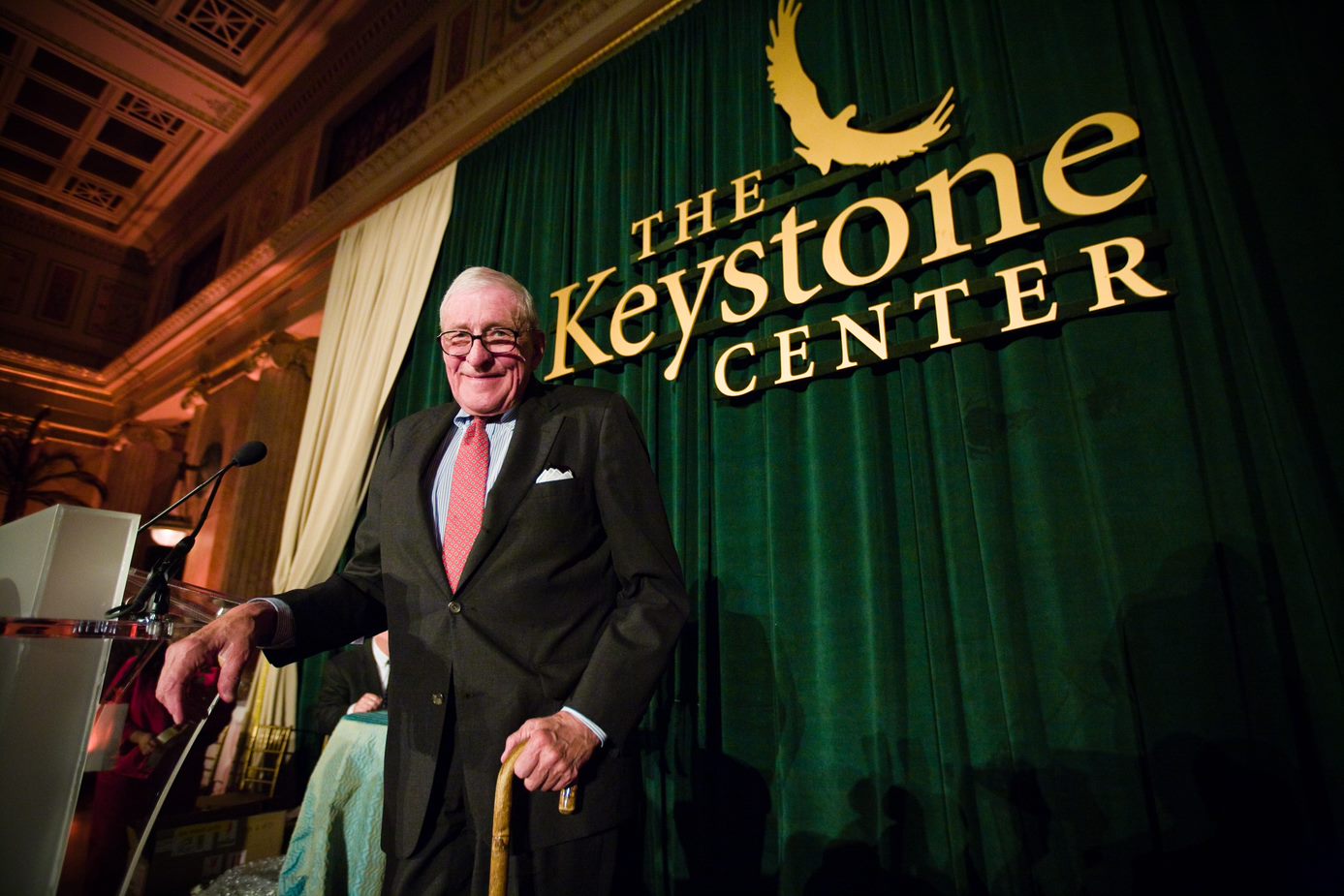As the Keystone Policy Center celebrates its 50th anniversary in 2025, we reflect on the life and legacy of Bob Craig, the organization’s founder. Craig’s remarkable journey—from mountaineer to policymaker—laid the foundation for Keystone’s unique approach to solving some of the world’s most complex challenges. Through his vision, humility, and collaborative spirit, Bob Craig created something that would outlast him: an enduring commitment to bringing people together for meaningful dialogue and action.
From Mountains to Collaboration
Bob Craig’s life was shaped by adventure and curiosity. As a young man, he discovered a love for mountaineering, an activity that fostered resilience, teamwork, and a deep respect for the journey as much as the summit. In 1953, he was part of the historic American Karakoram Expedition on K2, the world’s second-highest mountain. Though the summit was never reached, the team’s harrowing rescue efforts became legendary.
The expedition faced brutal conditions, including fierce storms and treacherous terrain at altitudes exceeding 25,000 feet. When teammate Art Gilkey developed a life-threatening illness high on the mountain, the group attempted a daring rescue. Tragically, Gilkey was lost in an avalanche during the descent, but not before the team’s efforts exemplified extraordinary courage and unity. One particularly dramatic moment involved team member Pete Schoening’s quick action to arrest a fall that could have claimed multiple lives. The event became known as one of mountaineering’s greatest feats of heroism.
Reflecting on the expedition decades later, Craig wrote about its profound impact: “Our chances of getting down thousands of feet over varied and demanding terrain weren’t promising. And yet there was no other choice. We couldn’t leave anyone behind.” This commitment to collective effort and the value of every individual’s contribution would later define his work at Keystone.

A Scientific Lens on the World

Craig’s mountaineering achievements were paralleled by a deep respect for science as a guiding principle. During his tenure as the first executive director of the Aspen Institute, he co-founded the Aspen Center for Physics, a groundbreaking hub where theoretical physicists could collaborate informally. His wife, Terry Craig, reflected on this innovative institution.
“Bob believed the best ideas often emerged outside formal meetings—on chairlifts, hiking trails, or over a shared meal.”
This insight into the value of unstructured yet purposeful dialogue would become a hallmark of what is now known as the Keystone process: a model of collaborative problem-solving that emphasizes trust, neutrality, and a focus on evidence-based solutions.
Founding the Keystone Policy Center
In 1974, following a life-altering experience on a deadly mountaineering expedition in the Soviet Pamirs, Craig was approached by Bob Maynard, president of Keystone Resort. Maynard’s question was simple: “Do you have another Aspen Institute in you?” Craig’s response, however, pointed to a more ambitious idea. By 1975, the Keystone Policy Center was born, built on the principle of bringing together people with diverse perspectives to tackle divisive issues.
Craig’s vision was pioneering. Few organizations in the 1970s embraced the idea of neutral convening as a means to solve contentious problems. His collaborative model brought scientists, policymakers, industry leaders, and advocates together in ways that were as innovative as they were effective.
“Bob had the ability to bring people with deeply opposing views into the same room,” said Clint Vince, a longtime colleague. “He didn’t just facilitate discussions—he inspired cooperation.”
Under Craig’s leadership, Keystone tackled issues that remain critical today. One of its earliest successes was facilitating dialogues on nuclear waste management, leading to pivotal policy changes under President Jimmy Carter. Keystone also addressed emerging technologies in the biotechnology sector during the 1980s, balancing innovation with environmental and ethical considerations.
Craig’s commitment to inclusivity extended to tribal engagement. Through initiatives like the Indian Business Roundtable, Keystone fostered partnerships between Native American tribes and government leaders, empowering tribes to assert greater autonomy over water and mineral rights. “Bob’s facilitation helped bridge cultural and political divides,” said John Echohawk, executive director of the Native American Rights Fund. “He saw the potential for collaboration where others saw only conflict.”
A Legacy Beyond Himself

For Craig, the Keystone Policy Center wasn’t just an organization—it was a chance to create something that would endure. “He wanted his work to be expansive enough for others to feel part of it and continue it beyond him,” said Terry Craig. Today, Keystone’s commitment to neutrality and collaboration remains deeply rooted in his vision.
In Craig’s own words, his legacy is one of “satisfaction derived from seeing a few good things happen—and knowing when to get out of the way.” This humility, paired with his relentless curiosity, defined his life and work.
As we celebrate Keystone’s 50th anniversary, we honor the man who made it possible. Bob Craig’s life serves as a reminder that real change requires not only bold ideas but also the courage to bring people together—even in the face of complexity and division. His legacy lives on in every conversation, partnership, and solution that Keystone fosters.
To learn more about Bob Craig and the founding of the Keystone Policy Center, listen to our three-part podcast series embedded below. Join us in reflecting on his extraordinary journey and the principles that continue to guide us into the future.


 Effective March 1, 2025, Thomas J. Vilsack, former United States Secretary of Agriculture and Governor of Iowa, became the first Chief Executive Officer for the World Food Prize Foundation. In this new role, Governor Vilsack is focusing on expanding the Foundation’s global network, and will further position the Foundation as a leader in addressing global food and nutrition insecurity, continuing his lifetime of public service.
Effective March 1, 2025, Thomas J. Vilsack, former United States Secretary of Agriculture and Governor of Iowa, became the first Chief Executive Officer for the World Food Prize Foundation. In this new role, Governor Vilsack is focusing on expanding the Foundation’s global network, and will further position the Foundation as a leader in addressing global food and nutrition insecurity, continuing his lifetime of public service. Shelby Coffey III is a distinguished journalist, media executive, and thought leader whose career has helped shape the landscape of American news and public discourse. Over several decades, Coffey has held some of the most influential roles in journalism, including serving as editor of the Los Angeles Times, executive vice president of ABC News, and deputy managing editor of The Washington Post. His editorial leadership extended to key roles as president of CNN Financial News, editor of the Dallas Times Herald, and U.S. News & World Report.
Shelby Coffey III is a distinguished journalist, media executive, and thought leader whose career has helped shape the landscape of American news and public discourse. Over several decades, Coffey has held some of the most influential roles in journalism, including serving as editor of the Los Angeles Times, executive vice president of ABC News, and deputy managing editor of The Washington Post. His editorial leadership extended to key roles as president of CNN Financial News, editor of the Dallas Times Herald, and U.S. News & World Report. Jerry Steiner has spent 40 years involved in agriculture following growing up on a Wisconsin dairy farm. He began his career with Monsanto, in multiple business leadership roles. From 2003-2013 he served as a member of the Executive team, as the company’s Executive Vice President of Sustainability and Corporate Affairs. He led the company’s global Government, Public and Industry Affairs teams across the 70 countries where Monsanto conducts business. This experience got Jerry connected to the Keystones centers work in agriculture. Key among his responsibilities were shaping the company’s public policy and building partnerships aimed at helping farmers around the world produce more food, while conserving valuable resources like water and energy. Two unique partnership that developed under his leadership were drought tolerant corn with 5 African countries, CIMMYT and the Gates foundation, and a building a sustainable business model in Brazil with the value chain leading to significant multi-company investment and soybean varieties that can protected themselves.
Jerry Steiner has spent 40 years involved in agriculture following growing up on a Wisconsin dairy farm. He began his career with Monsanto, in multiple business leadership roles. From 2003-2013 he served as a member of the Executive team, as the company’s Executive Vice President of Sustainability and Corporate Affairs. He led the company’s global Government, Public and Industry Affairs teams across the 70 countries where Monsanto conducts business. This experience got Jerry connected to the Keystones centers work in agriculture. Key among his responsibilities were shaping the company’s public policy and building partnerships aimed at helping farmers around the world produce more food, while conserving valuable resources like water and energy. Two unique partnership that developed under his leadership were drought tolerant corn with 5 African countries, CIMMYT and the Gates foundation, and a building a sustainable business model in Brazil with the value chain leading to significant multi-company investment and soybean varieties that can protected themselves. Jennifer Morris is the Chief Executive Officer of The Nature Conservancy, leading a team of nearly 6,000 staff working in more than 80 countries and territories tackling the dual crises of the
Jennifer Morris is the Chief Executive Officer of The Nature Conservancy, leading a team of nearly 6,000 staff working in more than 80 countries and territories tackling the dual crises of the  Congressman Joe Neguse represents Colorado’s 2nd District in the U.S. House of Representatives. He was elected to his first term in November 2018, becoming the first Black Member of Congress in Colorado history. In December 2022, Rep. Neguse was elected by his colleagues to serve as Chair of the Democratic Policy and Communications Committee (DPCC), becoming the first Coloradan to serve in a senior elected leadership role in the House in over 85 years. He serves on the Natural Resources and Judiciary Committees, and was also appointed by House Minority Leader Hakeem Jeffries to serve as one of four Democrats on the prestigious Rules Committee. Rep. Neguse serves as Ranking Member on the House Subcommittee on Federal Lands, which he previously Chaired in the 117th Congress.
Congressman Joe Neguse represents Colorado’s 2nd District in the U.S. House of Representatives. He was elected to his first term in November 2018, becoming the first Black Member of Congress in Colorado history. In December 2022, Rep. Neguse was elected by his colleagues to serve as Chair of the Democratic Policy and Communications Committee (DPCC), becoming the first Coloradan to serve in a senior elected leadership role in the House in over 85 years. He serves on the Natural Resources and Judiciary Committees, and was also appointed by House Minority Leader Hakeem Jeffries to serve as one of four Democrats on the prestigious Rules Committee. Rep. Neguse serves as Ranking Member on the House Subcommittee on Federal Lands, which he previously Chaired in the 117th Congress. Llewellyn King was born in Southern Rhodesia, now Zimbabwe. He went into journalism as soon as he turned 16, stringing for Time magazine and United Press in Africa.
Llewellyn King was born in Southern Rhodesia, now Zimbabwe. He went into journalism as soon as he turned 16, stringing for Time magazine and United Press in Africa. Steven Williams is the Chief Executive Officer of PepsiCo North America, overseeing a more than $48 billion business that spans PepsiCo’s Foods and Beverage operating units. His leadership encompasses more than 125,000 associates and over 900 locations across the U.S. and Canada. Steven joined PepsiCo in 2001 as part of PepsiCo’s acquisition of the Quaker Oats Company, which he joined in 1997, and has held leadership positions of increased responsibility since.
Steven Williams is the Chief Executive Officer of PepsiCo North America, overseeing a more than $48 billion business that spans PepsiCo’s Foods and Beverage operating units. His leadership encompasses more than 125,000 associates and over 900 locations across the U.S. and Canada. Steven joined PepsiCo in 2001 as part of PepsiCo’s acquisition of the Quaker Oats Company, which he joined in 1997, and has held leadership positions of increased responsibility since.